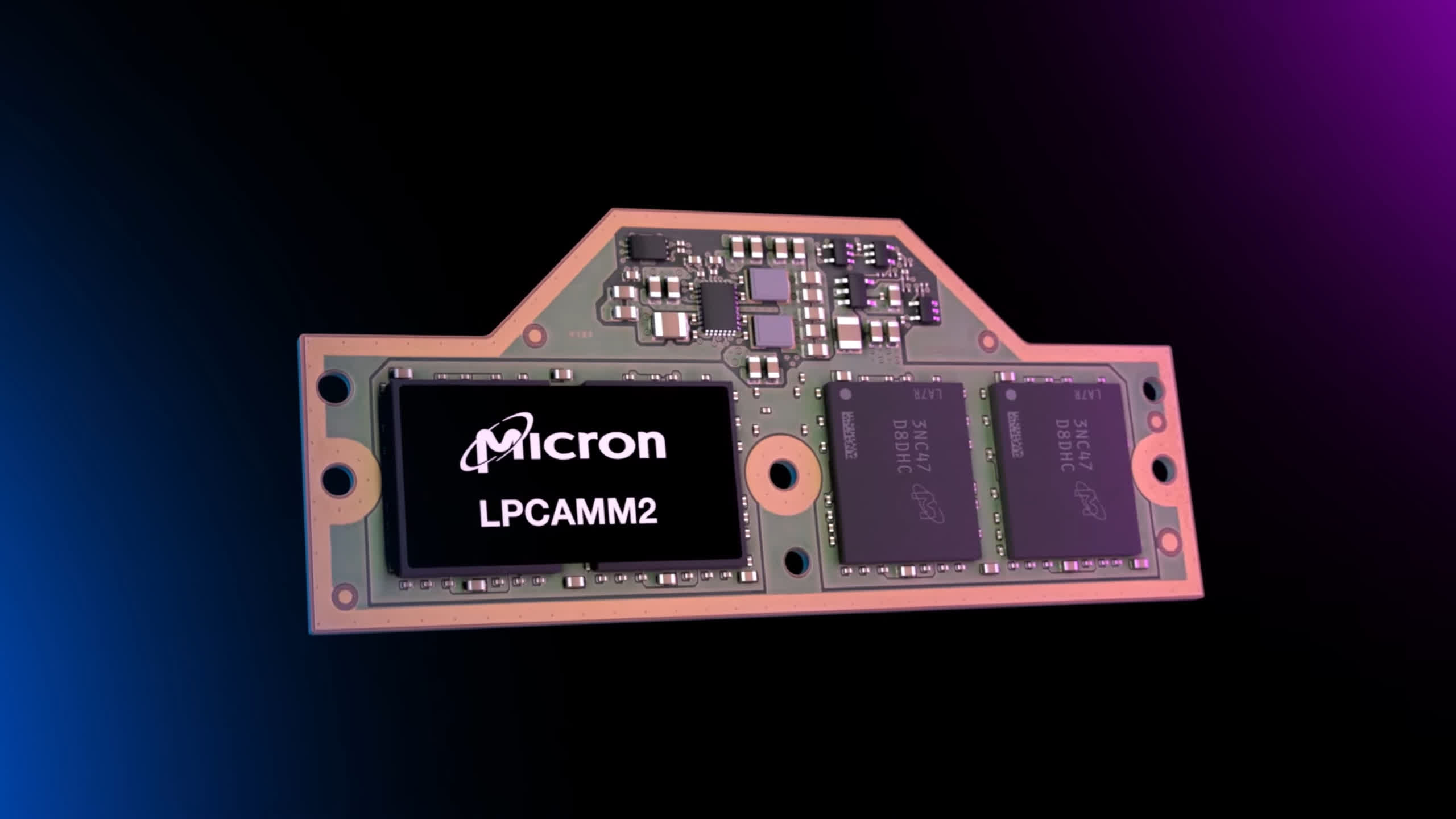Forward-looking: Now that the CAMM2 format has been officially adopted as a memory standard by JEDEC, major chip manufacturers are actively engaged in developing new memory modules for enhanced efficiency and performance. Micron stands out as the first company to introduce its new LPCAMM2 form factor to the market.
Micron recently introduced its innovative low-power compression attached memory module (LPCAMM2) form factor. This technology aims to deliver superior performance, enhanced energy efficiency, and space-saving benefits to next-generation laptops. With capacities ranging from 16 GB to 64 GB, the LPDDR5X chips integrated into the LPCAMM2 format are poised to enable the development of robust, AI-driven portable PC systems.
Described as the first disruptive form factor for client PCs since the introduction of SODIMM modules in 1997, the low-power CAMM2 format boasts LPDDR5X chips capable of achieving speeds up to 9,600 Mbps. This stands in stark contrast to the 5,600 Mbps data rate offered by current DDR5 SODIMM products, according to the US-based company.
The novel LPCAMM2 memory modules promise notable benefits, including up to seven percent improved performance for content creation workloads, up to a 15 percent enhancement for productivity tasks (as per PCMark 10 benchmarks), and up to 80 percent power savings in standby mode, contributing to an extended battery life. The LPCAMM2 memories are designed to be fully modular, providing enhanced supply chain flexibility for OEM and ODM customers. Micron plans to retail LPCAMM2 products under the Crucial brand, facilitating easy memory upgrades for laptop end-users.
Thanks to its influential position within the JEDEC industry association, Micron successfully collaborated with key client PC partners to design and develop the LPCAMM2 form factor. Lenovo, the world's largest PC manufacturer, emphasizes how this new memory format facilitates higher performance, scalable memory capacity, and improved battery life for both mobile workstations and lightweight laptops.
Intel is actively reimagining the client PC space through the development of optimized new platform designs, and Micron's LPDDR5X LPCAMM2 memories are set to play a pivotal role in these future innovations. The new format is particularly well-suited for generative artificial intelligence (GAI) use cases, as machine learning algorithms demand fast, energy-efficient RAM to support the upcoming AI revolution.
Micron has initiated sampling of the new LPCAMM2 memory modules, with full production expected in the first half of 2024. The company is poised to introduce Crucial LPCAMM2 memory products, catering to high-performance portable systems designed for gaming, original content creation, and, of course, advanced AI applications.
